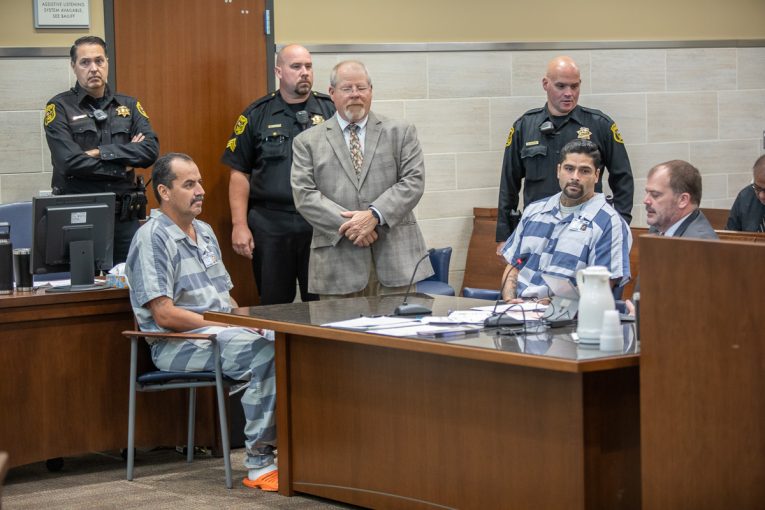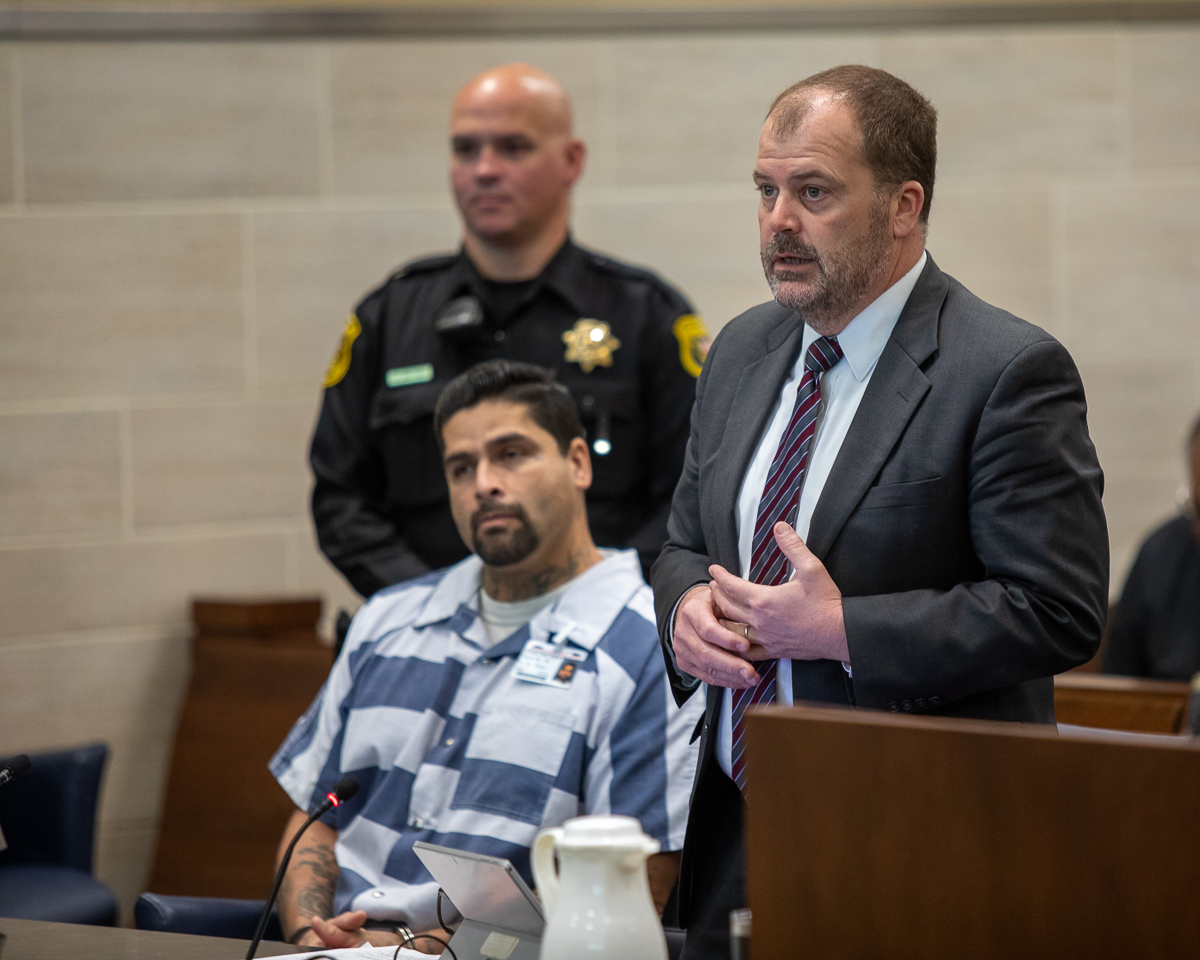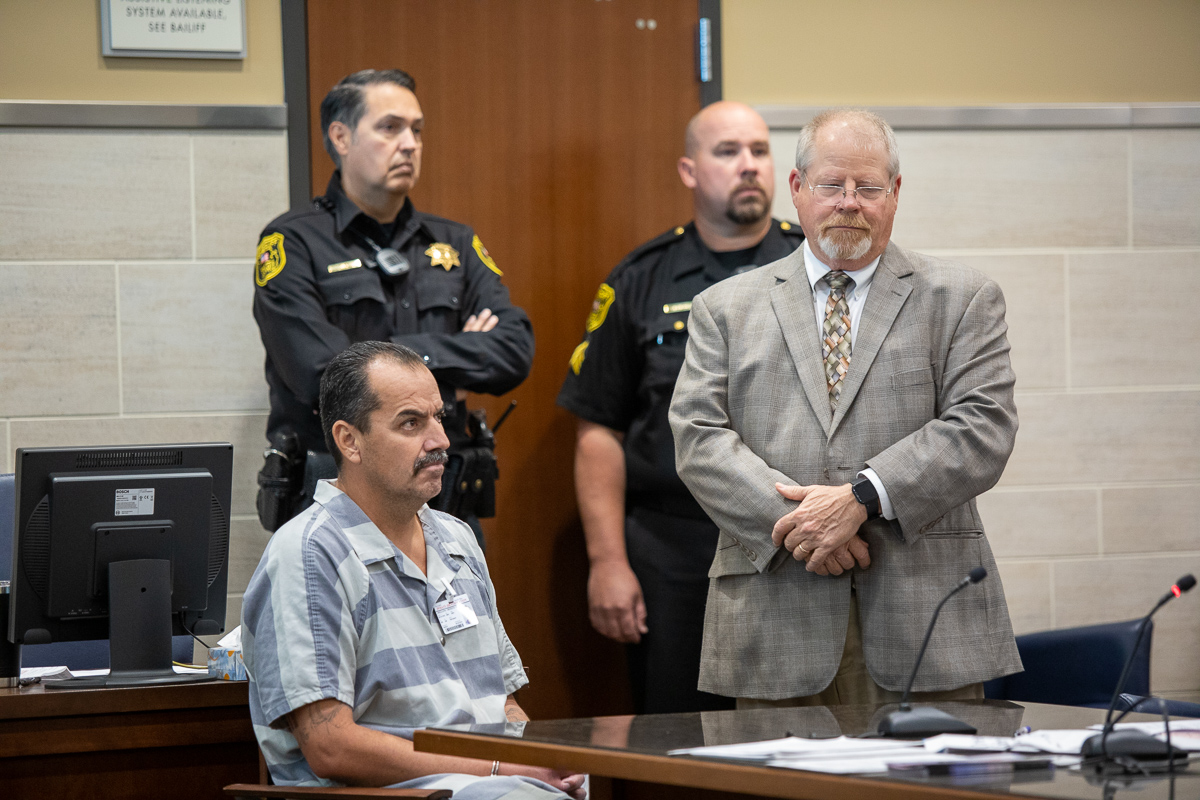

Judge Paul Richardson rejected a request from Deputy DA Ryan Couzens to rule that the SB 1437 petitions for James Olague and Ernesto Arellano do not qualify for relief under the new felony murder law and, over his objections, asked for a full briefing on whether there is prima facie evidence that the two would qualify for resentencing under the law that took effect on January 1, 2019.
On Thursday, Mr. Couzens continued to maintain that SB 1437 unconstitutionally alters two existing ballot propositions. However, he acknowledged that the two rulings from November out of the Fourth Appellate District remain the law of the land. That was a point that Judge Richardson reiterated, ruling that SB 1437 did not unconstitutionally amend either proposition – a decision that could be revisited if the 3rd District Court of Appeal rules against Davidson or the California Supreme Court disagrees.
The question before the court on Thursday was a narrow decision by Judge Richardson of the special circumstance rulings by the trial court, which included a finding of an intent to kill by both men in addition to their murder conviction.
In his brief, Deputy Public Defender Ron Johnson disagrees that special circumstances renders the petitioners ineligible as a matter of law. He argued that the original jury in 2006 was instructed on two theories of  liability for homicide – aiders and abettors to the crime itself, or to the accompanying assaults of which murder was a natural and probable consequence of those crimes.
liability for homicide – aiders and abettors to the crime itself, or to the accompanying assaults of which murder was a natural and probable consequence of those crimes.
A 2014 California Supreme Court decision held “an aider and abettor may not be convicted of first degree murder based on the natural and probable consequences doctrine. To be culpable for first degree premeditated murder, the aider and abettor must be based on direct aiding and abetting principles.”
The court held, “When a trial court instructs a jury on two theories of guilt, one of which was legally correct and one legally incorrect, reversal is required unless there is a basis in the record to find that the verdict was based on a valid ground.”
Mr. Johnson argues that the same standard applies here, that the jury verdict must be based “on the legally valid theory that defendant directly aided and abetted the premeditated murder.”
Mr. Couzens on Thursday, argued that the 2016 People v. Brown case, which Mr. Johnson cites, is not on point. “It couldn’t be because it came down prior to 1437,” he said.
His argument is that Brown only applies under three specific circumstances, none of which is present in the current matter. Absent those facts here, Mr. Couzens maintains the special circumstance “should be dispositive.”
“There is no reason why we should follow Brown,” he told the court. “The jury found an attempt to kill.”

Ron Johnson argued that Mr. Couzens was getting too far into the weeds here for a limited briefing. He pointed out that it would be the People’s burden to prove that the decision was not based on a theory that is now considered improper – felony murder. But that would come if the case gets beyond the point of a prima facie showing.
Mr. Couzens argued that this was based on a valid theory, “aiding and abetting.”
Robert Spangler joined Mr. Johnson’s argument and agreed with him, saying, “Mr. Couzens is putting the cart before the horse.”
Judge Richardson acknowledged that the issue here was whether the gang finding was dispositive by itself and a true finding would therefore render the defendants ineligible for relief under SB 1437.
He was not ready to make that determination and instead said he needs to look at the entire record – which is quite voluminous. He asked for the attorneys to return in two weeks with a briefing schedule for the prima facie showing.
Mr. Couzens, still attempting to limit the scope of the hearing, asked the judge if the briefing could be limited to the three issues laid out under Brown.
Judge Richardson however did not bite. “I need to see a fuller picture.”
The parties will return on February 7 with a better idea of how long it will take to get up to speed. Mr. Johnson noted that he himself still did not have the full record, but was expecting to get it from CDCR shortly.
—David M. Greenwald reporting






